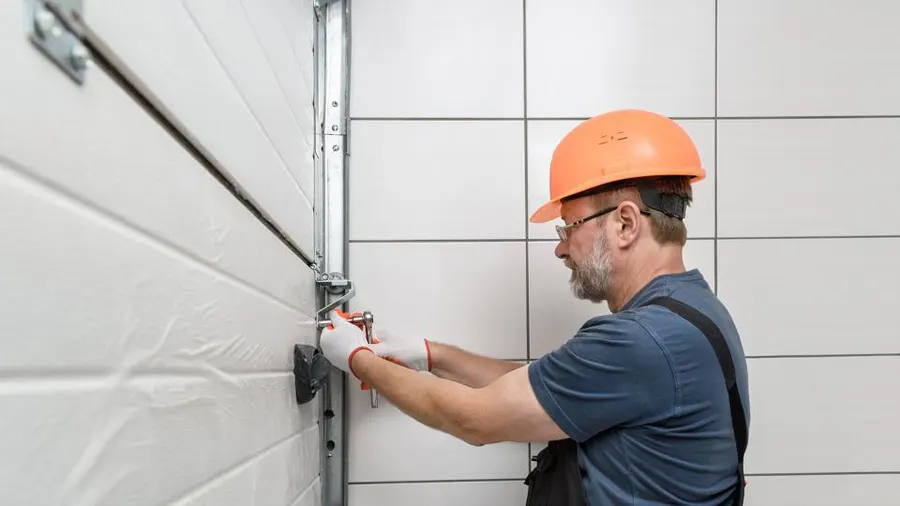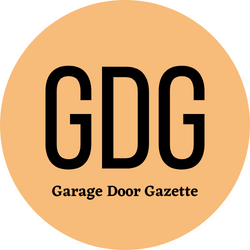Unlocking the Secrets to Garage Door Repair: A Comprehensive Guide
by siteadmin

Garage doors are the unsung heroes of our homes, diligently safeguarding our vehicles and belongings while often facing neglect in terms of maintenance and repair. However, when they malfunction, it becomes glaringly apparent how integral they are to our daily lives. From rusty hinges to malfunctioning openers, a faulty garage door can disrupt our routines and compromise our security. In this guide, we’ll delve into the world of garage door repair, uncovering common issues, DIY fixes, and when to call in the professionals.
Understanding Common Issues:
Before diving into repairs, it’s crucial to understand the common issues that plague garage doors. These include:
- Noisy Operation: Excessive noise during opening and closing can indicate worn-out rollers, loose hardware, or inadequate lubrication.
- Misaligned Tracks: If the tracks are bent or misaligned, the door may struggle to open or close smoothly.
- Broken Springs: Springs bear the brunt of the door’s weight and can break over time, leading to difficulty in lifting the door.
- Sensor Malfunction: Safety sensors prevent the door from closing on objects or people. If they’re misaligned or dirty, they may cause the door to reverse unnecessarily.
- Damaged Panels: Dents or cracks in the panels not only compromise the door’s aesthetics but also its structural integrity.
DIY Fixes:
While some garage door repairs require professional expertise, there are several DIY fixes that homeowners can tackle:
- Lubrication: Regularly lubricating the moving parts such as rollers, hinges, and springs can reduce friction and noise.
- Track Alignment: Use a level to ensure the tracks are properly aligned and adjust them if necessary.
- Sensor Alignment: Clean the sensors and ensure they’re aligned correctly to prevent false reversals.
- Tighten Hardware: Check for loose bolts and screws and tighten them to ensure the door operates smoothly.
- Panel Repair: Minor dents can often be repaired using a rubber mallet or plunger to restore the panel’s shape.
When to Call a Professional:
While DIY fixes can address minor issues, certain problems require the expertise of a professional garage door repair technician. These include:
- Broken Springs: Replacing garage door springs can be dangerous due to the high tension involved, making it a job best left to professionals.
- Motor Replacement: If the garage door opener motor is malfunctioning, it’s best to have it replaced by a trained technician.
- Track Realignment: Severe track misalignment or damage may require specialized tools and expertise to fix safely.
- Electrical Issues: Wiring problems or malfunctioning safety sensors should be handled by a licensed electrician or garage door technician.
- Panel Replacement: For extensive panel damage or structural issues, professional replacement ensures proper fit and function.
A well-maintained garage door not only enhances the curb appeal of your home but also provides convenience and security. By understanding common issues and knowing when to DIY and when to call in the pros, you can ensure your garage door remains in optimal condition for years to come. Remember, regular inspection and maintenance are key to preventing costly repairs down the line. So, roll up your sleeves, equip yourself with the knowledge shared in this guide, and keep your garage door operating smoothly.
Garage doors are the unsung heroes of our homes, diligently safeguarding our vehicles and belongings while often facing neglect in terms of maintenance and repair. However, when they malfunction, it becomes glaringly apparent how integral they are to our daily lives. From rusty hinges to malfunctioning openers, a faulty garage door can disrupt our routines…
Recent Posts
- Achieving Peace of Mind: The Importance of Customer Satisfaction in 24-Hour Garage Door Repair
- Ensuring Expertise and Quality: The Importance of 24-Hour Garage Door Repair Services
- Unlocking the Potential: The Evolution and Importance of Garage Doors
- Enhance Your Home’s Curb Appeal with Garage Door Replacement
- Unlocking the Secrets to Garage Door Repair: A Comprehensive Guide
